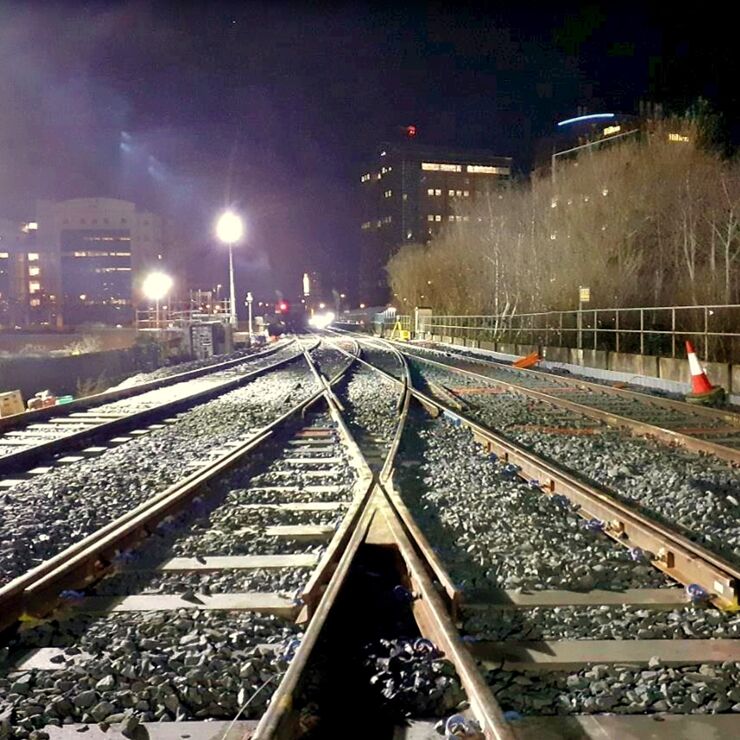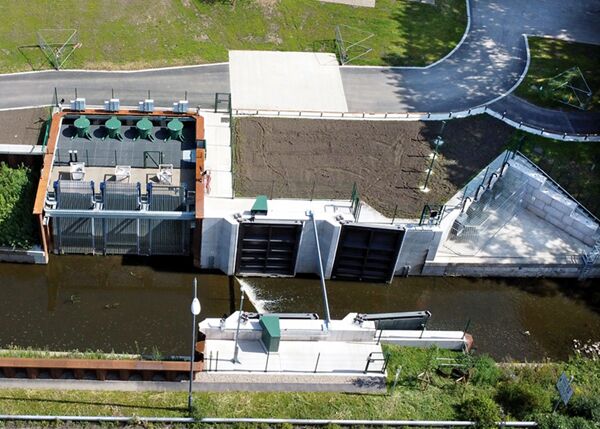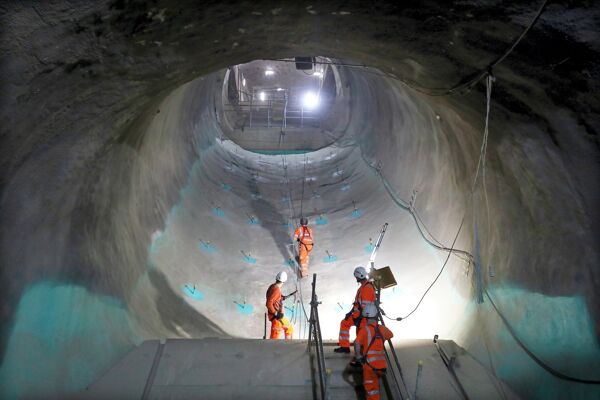
By Simon Fullalove
Four different NEC contracts have been used to renew one of the busiest junctions on the railway network in Northern Ireland.
National transport provider Translink’s in-house project management team led by Mark Gormley engaged its NEC framework contractor Babcock Rail to undertake the main permanent way, signalling and telecoms element of the £5.7 million Lagan Junction renewal in central Belfast. The work was let under an NEC3 Engineering and Construction Contract (ECC) Option A (priced contract with activity schedule).
As part of the junction renewal, Translink also awarded an NEC3 ECC Option E (cost reimbursable contract) to Graham Construction for removing an adjacent underbridge and constructing a new embankment. The majority of construction work was undertaken during a five-day track possession in December 2020, which was Translink’s first Christmas blockade since its formation in 1996.
Mott MacDonald was appointed NEC project manager and supervisor under an NEC3 Professional Services Contract (PSC), and key equipment was procured by contractors using the NEC3 Supply Short Contract (SSC).
The project involved complete renewal of the junction’s switches and crossings, and replacement of 240 m track including ballast and concrete sleepers with under-sleeper pads. It also included renewal and rerouting of all local cabling, and installation of new points machines and heaters, tubular stretcher bars and track circuits. The parapets and arch of masonry bridge UB316 were removed prior to infilling and replacement with a new section of embankment to support the railway.
The work was completed on budget and 2 days early, enabling the railway to reopen to passengers on schedule on 4 Januray 2021.
COST CERTAINTY
Translink’s project manager Mark Gormley says, ‘We selected an ECC Option A contract for the main permanent way, signalling and telecoms works as it gave us greater cost certainty. However, due to uncertainties with the scope of works associated with the underbridge removal, we selected an ECC Option E contract for this. It proved to be the correct option and led to successful delivery of the bridge demolition in the constrained timeframe.’
He says the NEC obligation to act in a, ‘spirit of mutual trust and co-operation’ resulted in the development of a strong collaborative ethos in the project team from the outset. ‘During the design development phase, the parties worked closely to consider key interfaces and risks associated with this complex multi-discipline project as early as possible. Workshops were organised to allow input from all parties and to ensure that optimum solutions were progressed. A whole-life focus was incorporated into the design, such as fitting under-sleeper pads to all switch and crossing bearers to extend the ballast life.’
Gormley says all parties – including cost consultant Chandler KBS − worked towards a common goal. ‘This was evident in the administration of the various NEC contracts. Numerous early warnings were raised of issues that might increase prices or delay completion, and risk reduction meetings were held to ensure corrective actions were identified, agreed and implemented.’
He says collaboration extended to stakeholder and community communications, led by Gravis Planning in conjunction with the Translink’s corporate communications team. ‘Comprehensive information on the timing and any disruption likely to be caused by the works was provided via a project website, a webinar and communication pamphlets to local residents. This led to only two matters being raised by the public, both of which were addressed in a timely fashion.’
EARLY COMPLETION
Gormley concludes, ‘Due to the NEC-inspired collaborative approach, good contract management and high degree of transparency, the renewal works were completed 2 days early and the railway re-opened to passengers on time in January 2021. Final accounts on all NEC contracts were agreed with minimal discussion, which is a significant success for Translink.’
He adds that on completion of the works, a series of lessons-learned workshops were held. ‘These enabled key members of the project delivery team to discuss areas of success and identify any areas for improvement. The outcomes of these workshops have now been disseminated throughout the various organisations to be brought forward to future projects.’
Benefits of using NEC
- NEC contract suite provided a range of collaborative contracts to procure contract management services, design development, equipment supply, permanent way works, civil engineering works and signalling and telecoms installation.
- NEC’s various payment options enabled the larger, more clearly defined permanent way works to be undertaken on a fixed-price basis with the less certain civil engineering works to be let on cost-reimbursable basis.
- NEC obligation to act in a, ‘spirit of mutual trust and co-operation’ let to strong collaboration across the all parties and stakeholders from the outset.
- NEC early warnings and risk reduction meetings ensured issues that might increase costs or delay completion were identified and resolved in a timely fashion.
- The junction renewal was completed on budget in just three days of a five-day blockade, and final accounts were agreed with minimal discussion.
Further Information
Contact: Mark Gormley, Project Manager, Translink, Northern Ireland.
Tel: +44 7773 648614
Email: mark.gormley@translink.co.uk
Web: www.translink.co.uk



